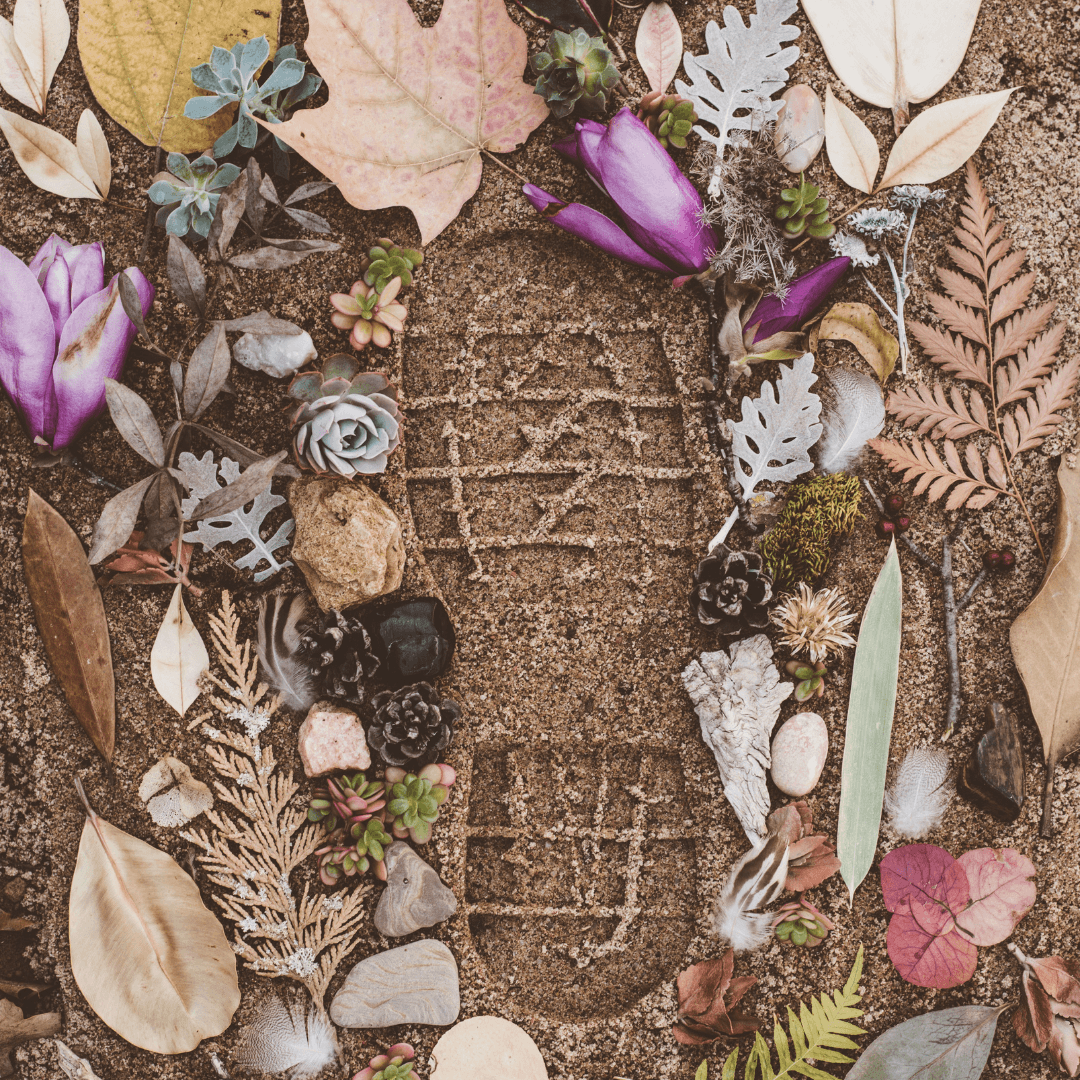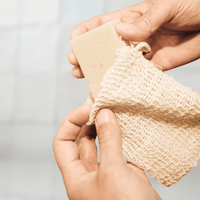
Lifestyle Save The Planet Sustainability
All it takes is a deep dive into our lifestyles to make a meaningful and positive change for our environment, our health and the health of future generations. It can be frightening when you realize how unsustainable your life is, and can be even MORE frightening to know where to begin. Luckily, we’re here to help and support you as you work to reduce your ecological footprint!
I think it is important to note that if you are just beginning this journey, you should not just throw out your old things to create this new, sustainable lifestyle because that defeats the purpose of what you’re trying to accomplish. Don’t dump your plastic sandwich bags in the trash for your new, washable and reusable ones or get rid of all your bottled water to start using a reusable water bottle instead. Instead, reuse all of your single-use items over and over and over again until you physically cannot use it anymore. Should you feel guilty for having these things sitting in your house? NO, because you're making an effort to change. Should you feel guilty if you tossed them out unused? YES! A lot of energy, resources, material and shipping went into producing those products. If you tossed them out unused, then you also just threw away all of the resources it took to create it. In this case, it would be more environmentally friendly for you to reuse all of your single-use items over and over again until the value you have received out of them has outweighed the costs of production on our planet. And once those single-use plastics are no longer usable, switch to more eco-friendly options as you replace them.
If you’ve been feeling overwhelmed about what we as humans have done to the natural world, just take a deep breath and get ready to feel empowered with these six EASY ways that you can reduce your environmental footprint.

1. Keep a Tally of All the Waste You Produce in a Day and Try to Cut It in Half
Imagine yourself opening a bag of chips — you start eating its tasty contents, and once you’re finished, you throw the plastic bag into the nearest trash can. Now fast forward 400 years from that moment. It may come as a surprise to you that your plastic bag from the chips is still here, intact. On top of that, it will still take another 100 years to go until it’s totally broken down into plastic dust (more commonly known as “microplastics” which STILL cause issues and damage ecosystems).
The average American creates around 4.4 pounds of trash per day — which in the end adds up to more than 500 billion pounds of trash per year for all of the U.S. What can we do to avoid what seems to be a trash-pocalyptic future? The answer is cutting your waste.
Forget about disposables. Every single item that we use once in our lives can be replaced by either a reusable option or a substitute that causes a lot less harm to our living planet. Here are some of the EASIEST ways to do this today:
Single-use to-go coffee → reusable Coffee Mug
Single-use coffee pods → regular ground coffee
Plastic water bottles → reusable/refillable water bottles
Paper napkins at meals → reusable cloth ones
Packaged snacks → package-free snacks, bulk item snacks or homemade snacks (veggies, fruits, nuts)
Plastic bags → reusable bags for groceries, convenience stores, shopping, etc.
If you made the switch for just one of the items above (say, disposable coffee cups) and you make coffee runs twice a day, five days a week, you would save roughly ~500 coffee cups from going into a landfill. It adds up! Inspire a few of your friends to make the switches, and you’re making a much bigger environmental impact than you could have anticipated.
We also want you to know that if you mess up, it is OK. When you do, think to yourself, “How can I reuse or repurpose this?” If you can’t reuse or repurpose, recycle it appropriately. Get creative! If you ditched the disposable lid, straw and stirrer on your coffee run, that makes your “mistake” a little better. Or if you forgot your reusable tumbler, find coffee shops that offer mugs and take a few minutes to enjoy your coffee there. Solutions are everywhere and as you become more mindful of the trash you produce and your current habits, you will look for different solutions naturally.

2. Cut Down on Meat and Dairy Consumption to Reduce Your Ecological Footprint
With more research coming out about the impact the meat and dairy industry has on our planet, it’s almost a no-brainer to cut down your consumption habits. Do you have to go fully vegan? Not necessarily.ry eating one plant-based meal a day, then try one full day and then try two full days, etc. You’ll notice it gets easier to eat less meat as your body adjusts!
Not only is it good for the planet, but there is also tons of research on the benefits of adopting a more plant-based lifestyle for your health.
Research has shown that one calorie of animal protein produces 10x the fossil fuel input as one calorie of plant protein. Studies have also shed some light on how livestock accounts for 65 percent of nitrous oxide coming from human-related activities. Nitrous oxide is a greenhouse gas 296 times more powerful than CO2 when it comes to its warming capacity and is able to remain in the atmosphere for 150 years. To produce the amount of food a meat-eater eats in a day, you need about 4,000 gallons of water. For a vegan, it only takes 300 gallons of water.
Cheese is another animal product that you should consider reducing your intake of — for the planet and for your health. Women produce milk for their offspring for a reason, and when you think about another animal species drinking human milk, or humans drinking another animal's milk, things don’t really add up. The average American eats over 33 pounds of cheese per year. These animals are fed growth hormones that impact our health in astounding ways, and may actually be the cause for 13 different types of cancer (think: breast, prostate, etc.). Methane is still emitted into the atmosphere when producing cheese, water is still used and wasted to raise cattle — all to produce an unnecessary food that has a high chance of giving you one or more of 13 different types of cancer.
But the recent rise in veganism awareness is not just about the protection of our planet. More and more insight into how plant-based diets enhance our health, and how animal-based diets lead to disease, is gathered by the day and a call to reduce or quit meat and dairy consumption has become significantly important in leading healthy lives.
3. Shop Locally and Shop Organic
It takes approximately 1,500 miles for the average meal to travel from farm to plate within the U.S. We can largely reduce this figure down to 100 miles (or even less) when opting for local produce instead. Not only will this simple choice reduce the CO2 emissions linked to our food travel, but it will also help preserve green spaces and support the local economy. Going further, industrial farming methods have been shown to deplete soil fertility, pollute waterways and destroy biodiversity. Buying your produce from a local farmer's market has a positive environmental impact simply because small, independent farms don’t produce nearly as many emissions as factory farms. Plus, local farmers truly care about the earth and their impact on it.
Ditching the industrial agricultural system can also make a positive impact on our health and well-being since it has been proven that foods grown locally usually hold more nutrients and taste better. That is because foods that are grown to be durable for shipping and have a long shelf life are often harvested before they are ripened and, at times, are artificially ripened.
The GMOs used in industrial agriculture, which are basically the unnatural combination of different species DNA, are used primarily to make plants grow faster and make them resistant to herbicides, which threatens human and environmental health. Some herbicides used (think: Roundup and Monsanto) are being researched and found to be “carcinogenic in humans.” GMOs are banned in 38 countries (not including the USA). Only 30 states in the U.S. are required to label GMOs in food.
The impact of industrial agriculture goes beyond the depletion of our soils. Most of us are now aware of how this food-growing method pollutes our water, contributes to climate change, destroys animal and plant diversity and even damages our health. We can refrain from contributing to these negative effects, in addition to taking care of ourselves and the planet, by purchasing local and organic produce.
4. Consider Cleaning Naturally to Reduce Your Carbon Footprint
We may want to think twice about buying household cleaning products, even if we happen to see the words “natural” or “safe” printed on their packaging. From laundry detergents to furniture polish and from mold and mildew removers to air fresheners — no matter how, when or where we use these “cleaners” — they’re already infiltrating our bodies, our waterways and our planet.
Substances commonly used in these products such as surfactants or ammonium hydroxide are considered toxic and extremely poisonous for aquatic life, whereas chemicals like Alkyl Dimethyl Benzyl Ammonium Chloride (C12-16) are known to provoke reproductive toxicity in animals.
To find out how these products directly affect us, the Environmental Working Group (EWG) rounded up scientists to review more than 2,000 cleaning supplies, just to find links to diseases such as asthma, cancer and allergies.
If you want to take an extra, more eco-friendly step, start creating your own cleaners! Apple cider vinegar, lemon/citrus and baking soda are all-natural and essential when creating your own home cleaners. Plus, you can avoid unnecessary waste again and again by reusing your old cleaning bottles to create your own, homemade concoction that doesn’t release toxins into your home! If you want the homemade stuff but really just don’t have the time, I would recommend going on Etsy! A lot of people do take the time to create these concoctions and you get the quality and benefit of homemade without having to spend too much time making it.
Check out EWG’s list on best ranked household cleaners and consult Google for the best homemade cleaners — from laundry detergent to toilet cleaners! If you do plan to make your own cleaners or purchase them from another vendor, be mindful of the ingredients. Even some natural ingredients can be toxic when combined, so it’s important to take steps to keep yourself safe while trying to protect the planet.

5. Start Recycling and Composting
If you don’t already recycle, now is a great time to start! It is estimated that we only recycle 30 percent of total recyclable items in the U.S. We believe this figure is awfully low, considering there is a lot of value behind recycling. For instance, recycling ONE aluminum can could hypothetically save enough energy to power through an entire album on your phone. Sometimes, a glass bottle could even end up back on the shelf at the grocery store in as little as 30 days!
Recycling doesn’t have to be as bad as you think, and tons of zero-waste families are proving this possible! Our first recommendation is to think of the things in your house that are easy to recycle — aluminum, cardboard/paper packaging and glass. These things can easily be separated and some will build up faster than others. Check out this site for a comprehensive list on how to separate recyclables based on the things you use.
Composting may be a newer term to you, and it’s basically a really easy way to separate living foods from our landfills. Food scraps and other compostable items can release methane into the atmosphere when put into a chemically imbalanced atmosphere (for instance, in a landfill). Not only that, but food waste globally emits 3.3 BILLION TONS of CO2 a year. All of these greenhouse gas emissions contribute to global warming. Composting can be fantastic for your soil, as the nutrients from the foods enter back into the land. Some people try to ensure their compost is properly balanced to use it again, although I’ve seen other people just composting to dispose of biodegradable items more efficiently and earth-friendly. Check out this blog post for a huge list of things you can and cannot compost.
If you are interested in growing your own food (which, by the way, is a great way to reduce your environmental impact), compost makes an excellent, all-natural fertilizer. Add it to your garden and you’ll enjoy delicious veggies all summer long and worry less about your contributions to environmental issues.
6. Make Small Changes at Home
If you want to do your part to protect natural resources and lower your environmental impact, there are plenty of small ways to do just that. Start by replacing that leaky faucet that’s been dripping for months. Take shorter showers and install low-flow shower heads so you can use less water, too.
Be mindful of your energy consumption. Replace all of your traditional light bulbs with energy-efficient ones, and consider installing solar panels on your home to take advantage of this renewable energy source. Use less energy by installing a programmable thermostat. There are all sorts of ways to reduce your energy consumption.
If you typically drive yourself to work, consider taking public transport. Taking the bus or train even one day a week has a positive impact. Carpooling is an excellent option, as well.
When you need new clothes, furniture or just about anything else, consider shopping secondhand. Buying from thrift and secondhand stores is great for the planet and can save you a bundle of cash compared to buying new. And as a bonus, you may be surprised at just how fun it is to browse the racks and shelves at a local thrift store in search of a hidden treasure.
Take Steps to Reduce Your Ecological Footprint Today
Thank you for making it through our post! If all of these things are totally easy for you to do, that is FANTASTIC! If some are easier for you than others, that is okay, too. Start with prioritizing what you can easily accomplish when you analyze your habits and your situations. For example, if you were never a big beef eater anyway, that makes it easier to cut it from your diet. If you’ve been meaning to switch to less-toxic cleaning methods for a while, this is the chance to look into alternatives or make your own. If you have a huge backyard or have a friend who’s passionate about gardening, maybe composting can be your first step! Again, we understand that some habits may be easier to change depending on your situation, so just take a deep dive into your current situation and try to adjust the things that you can. The goal isn’t to be perfect, but to strive to do your best every day, because every bit counts.







